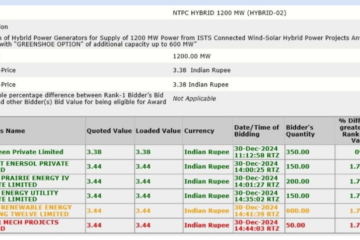
At the 2021 COP26 Summit held in Glasgow, Prime Minister Narendra Modi announced India’s ambitious plan to increase its renewable energy generation capacity to 500 GW and meet 50% of the nation’s energy needs through renewable sources by 2030. This pledge not only underscores India’s commitment to combating climate change but also showcases its leadership in embracing a greener, more sustainable energy future. In this blog article, we will explore the implications of India’s COP26 commitments and discuss the initiatives required to achieve these targets.
India’s COP26 Commitments: A New Era of Climate Leadership
India’s bold pledge at the COP26 Summit marks a turning point in the country’s climate change narrative, highlighting its determination to address global warming while meeting the energy demands of its growing population. By committing to generate 500 GW of renewable energy capacity and ensure that 50% of its energy requirements are met through renewable sources by 2030, India has set an example for other emerging economies grappling with the challenges of climate change and sustainable development.
Realizing the COP26 Commitments: Key Initiatives and Challenges
Achieving India’s ambitious COP26 commitments will necessitate the implementation of several key initiatives and the overcoming of various challenges:
- Scaling Up Renewable Energy Infrastructure: To achieve 500 GW of renewable energy capacity by 2030, India will need to invest heavily in expanding its solar, wind, hydro, and biomass energy infrastructure. This will require the formulation of supportive policies, provision of financial incentives, and the development of innovative financing mechanisms to attract domestic and international investment.
- Strengthening Grid Infrastructure and Energy Storage: As India’s renewable energy capacity expands, it is essential to upgrade the country’s grid infrastructure and invest in energy storage solutions to ensure the reliable and efficient integration of renewable energy sources into the power grid.
- Fostering Technological Innovation and Research: Realizing India’s renewable energy targets will necessitate the promotion of technological innovation and research in the clean energy sector. The country must invest in the development of advanced renewable energy technologies, energy efficiency solutions, and smart grid systems to improve the cost-effectiveness and performance of its clean energy projects.
- Enhancing Skill Development and Capacity Building: As India transitions to a renewable energy-based economy, it will need to develop a skilled workforce capable of designing, installing, and maintaining renewable energy systems. This will require the creation of targeted skill development programs and the establishment of partnerships with academic institutions and industry stakeholders to train and upskill the workforce.
- Addressing Land and Environmental Challenges: The large-scale deployment of renewable energy projects in India will necessitate the careful management of land resources and the mitigation of potential environmental impacts. The government must establish a robust regulatory framework to address these issues while ensuring that renewable energy projects contribute to sustainable development and environmental conservation.
Conclusion
India’s COP26 commitments represent a significant step towards accelerating the country’s transition to a low-carbon, climate-resilient economy. By pledging to increase its renewable energy capacity to 500 GW and meet 50% of its energy needs through renewable sources by 2030, India has demonstrated its commitment to addressing climate change and promoting sustainable development. Realizing these ambitious targets will require concerted efforts from the government, private sector, and civil society, as well as international collaboration and support. As India embarks on this journey, it has the potential to emerge as a global leader in renewable energy and inspire other nations to embrace a cleaner, greener future.
